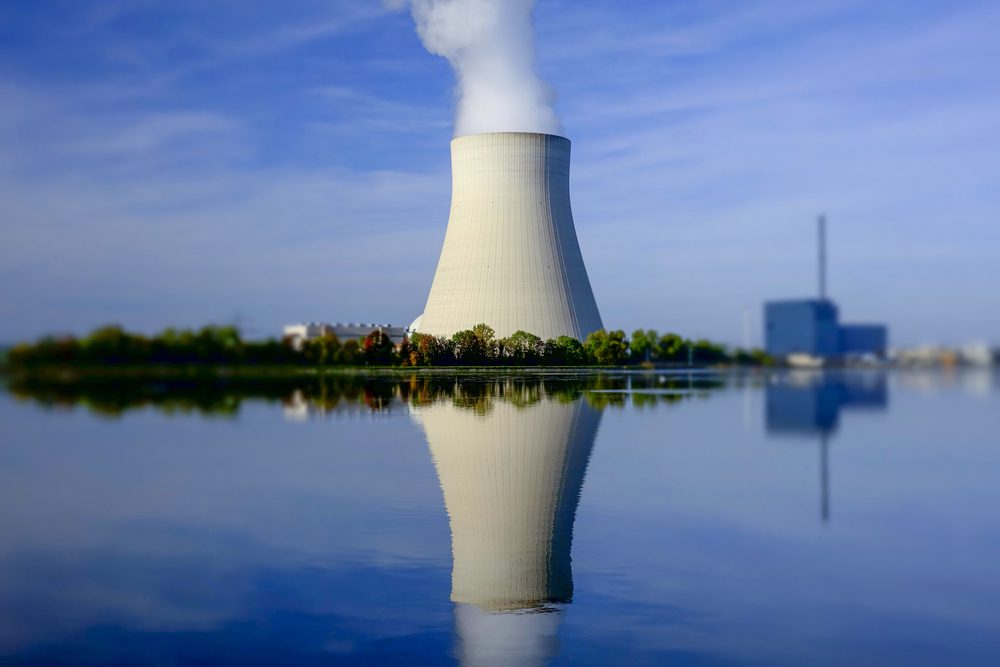
Germany’s largest nuclear power plant in Bavaria, the Isar 2, may remain in operation next year if research by the German government deems it necessary. The option was disclosed to the Frankfurter Allgemeine Zeitung on Friday by the country’s environment minister Steffi Lemke.
After the nuclear disaster in Fukushima, Japan in 2011, Germany made concerted efforts to phase out nuclear power by December 31st of this year and make the leap to ‘green’ energy sources. But with Russia’s invasion of Ukraine putting the security of gas supplies at risk, the situation has changed. Calls are now being made for the three largest power stations in the country, including the one in Bavaria, to remain open.
According to Lemke, stress testing the German energy supply should indicate whether the Isar 2 plant could be closed or not. In case of a “serious electricity or grid problem, we will evaluate this situation and the options that then exist,” she said.
The results of the test should be available in a few weeks, after which a decision will be made.”You cannot judge a high-risk technology based on daily surveys,” Lemke stressed. Should an extension be approved, it is projected to last only for a few months.
In Germany, the topic of nuclear energy is a sensitive one. For weeks now, the FDP (Free Democratic Party) and the Greens under Olaf Scholz’ (SPD) traffic light coalition, have been arguing about whether nuclear power plants should get an extension. FDP leader Christian Lindner had pleaded for allowing these plants to run “if necessary until 2024.” He also demanded that gas should no longer be burned to generate electricity.
In an interview with ZDF, co-chairman of the Greens Ricarda Lang has poo-pooed this proposal, boldly stating that “what Christian Lindner wants is nothing more than the return to nuclear power. And that will definitely not happen with us.”
Careful not to inflame this debate any further, Lemke therefore advocates “sobriety,” while emphasizing the importance of making decisions “based on facts.” Yet for all her efforts, within Lemke’s party, it is an issue of significant symbolic value—one on which they have campaigned for years. It is then little surprise that some in it, like Lang, remain vehement in their opposition.
To Bild am Sonntag, she said that “conserving energy” is the way out. Gas meanwhile, she said, is hardly used for generating electricity and can only be minimally replaced by nuclear power plants. She puts her faith in coal-fired power plants instead, because they have proven to have “worked better, which is why they are now being used.” Germany, she concluded, has a “heating problem, not a power problem.”
She was also confident that, according to the facts at hand, there would be no power shortages in autumn and winter. Yet Lang—at least pro forma—awaits the results of the stress test, just like Minister for Economic Affairs and Climate Action Robert Habeck (Greens).
Adjacent to the Green’s dance with nuclear power, is the debacle over Markus Söder (CSU). The prime minister of the southern state of Bavaria put out a plea for energy solidarity from northern German states, which has angered his colleagues—from the Greens in particular. They blame him for failing to expand power lines and invest sufficiently in wind power.
Söder’s suggestion that these northern states start fracking, a practice that Germany banned in 2016 over the environmental risks it poses, has endeared him even less. In a Süddeutsche Zeitung interview, Söder put options on the table to counter Germany’s ongoing energy shortages. “Nobody wants yesterday’s fracking. But it makes sense to check whether there are new and environmentally friendly methods,” the CSU leader said. “According to experts, there are large natural gas fields in Lower Saxony in particular,” he added.
An agitated Stephan Weil (SPD), Lower Saxony’s prime minister, tweeted to Söder, asking him if he was being serious or not. As a barb, he queried: “Dear Markus Söder, how about finally getting some wind power in Bavaria?”
"Der Süden fordert Fracking im Norden“ – geht’s noch?!
— Stephan Weil (@stephanweil) July 30, 2022
Lieber Markus Söder, wie wär‘s endlich mit Windkraft in Bayern?
#Energiewende #Windkraft #Fracking @Markus_Soeder https://t.co/FelKI2sC9k
Söders claims were countered by chairman of the Greens, Omid Nouripour. In an interview with the Bayern media group he labeled Söder a “bearer of problems” for Germany’s energy supply. “In 2020, only three new wind turbines were approved in Bavaria,” the Iran-born politician said. “So these won’t help much with the transition [to renewables],” he added. In respect to fracking, he considered it a dead end: “We would not get sufficient volumes for five years at the earliest. That will not help us get through the next two winters, it is yet another bogus debate alongside the one about extending the lifetime of nuclear power plants.”
Whose vision will ultimately emerge victorious, and whether it will indeed be based on a sober assessment of ‘the facts’ remains yet to be seen.
